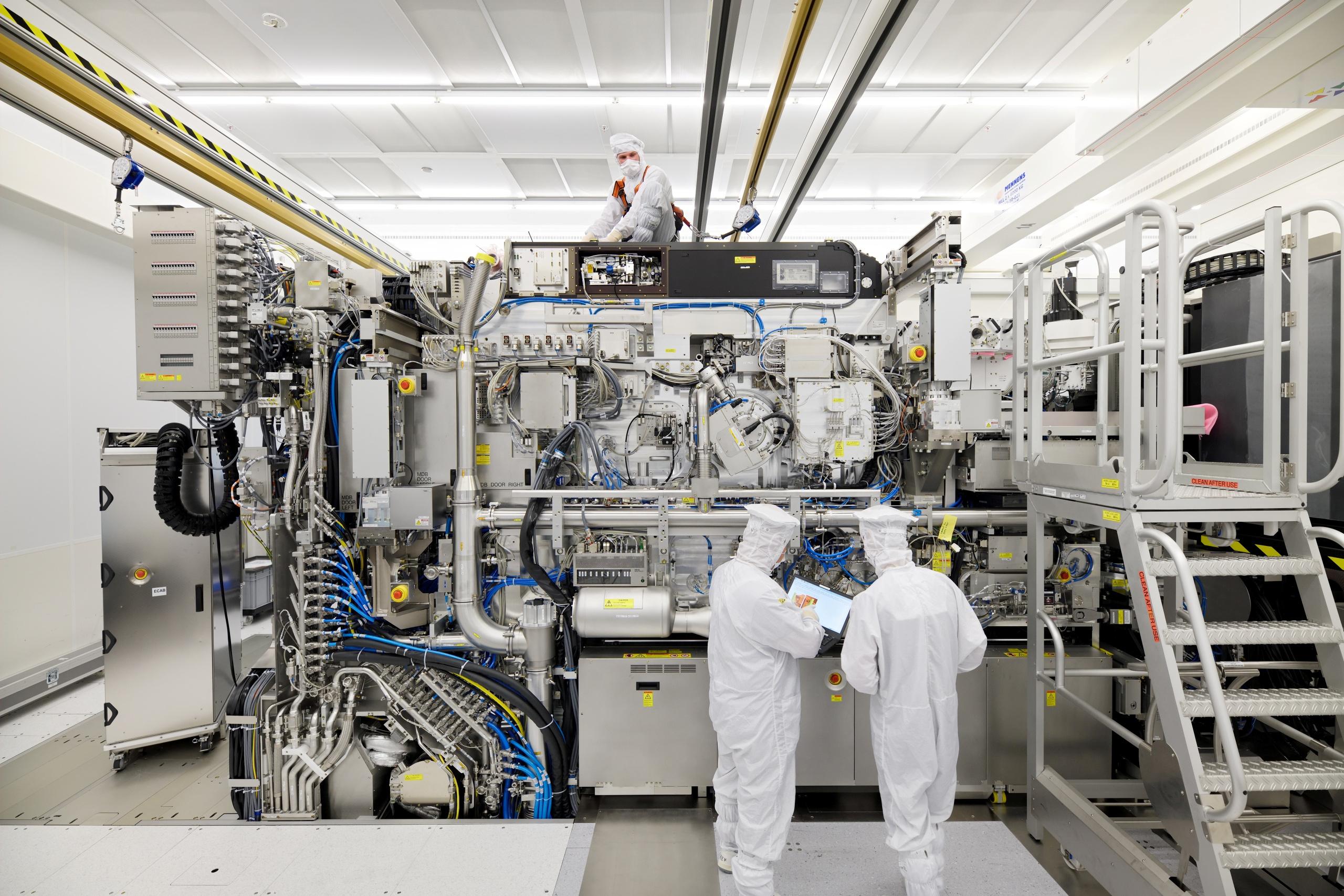

ASML's TWINSCAN NXE:3400B semiconductor lithography tool. Image credit: ASML
Japan is expected to sharply increase its spending on semiconductor equipment, as it seeks to bolster its position in the market.
The move comes amidst a US push to limit China’s growth in the chip business through increasingly strict export controls.
Japan joined that effort on Friday with export controls of its own that are expected to affect China.
At the same time, Japan is expected to spend $7 billion (£6bn) on wafer fabrication plant equipment in 2024, an 82 percent increase over this year, according to chip equipment industry association SEMI.
That compares with a 2 percent increase for China and amounts to higher than the combined spending in the area in Europe and the Mideast.
Taiwan remains the biggest spender, with $24.9 billion expected next year, SEMI said.
But the move indicates that Japan is looking to take advantage of the US effort to limit China’s chip ambitions by developing next-generation chips and attracting domestic chip manufacturing facilities.
The country was a dominant chip producer in the 1980s, becoming the world’s biggest semiconductor supplier in 1986, surpassing the US.
In the late 1980s the US brought various measures into play that limited Japan’s expansion and allowed American producers to regain the top spot in the early 1990s, before ceding the role to Taiwanese and South Korean firms such as TSMC and Samsung Electronics.
China alluded to those US measures against Japan over the weekend, urging Japan not to take similar measures against China.
During a visit to Beijing by Japanese foreign minister Yoshimasa Hayashi, his Chinese counterpart Qin Gang said that in the past the US tried to “brutally suppress” Japan’s chip industry and was now “repeating its old tricks” against China.
“Don’t do to others what you don’t want others to do to you,” Qin said, according to a Chinese foreign ministry statement published on Sunday.
Such a “blockade” would “only stimulate China’s determination to become self-sufficient”, Qin added.
Notable development for Meta, after appeal against 2021 WhatsApp privacy fine is backed by advisor…
First sign of shakeup under new CEO Lip-Bu Tan? Three Intel board members confirm they…
Trump's nominee for SEC Chairman, Paul Atkins, has pledged a “rational, coherent, and principled approach”…
After being 'retired' by Intel's board of directors, ex-CEO Pat Gelsinger has joined a VC…
President touts easing Chinese tariffs to facilitate TikTok sale, and also implements 25 percent tariff…
Copyright lawsuit against OpenAI and Microsoft from The New York Times and other newspapers can…